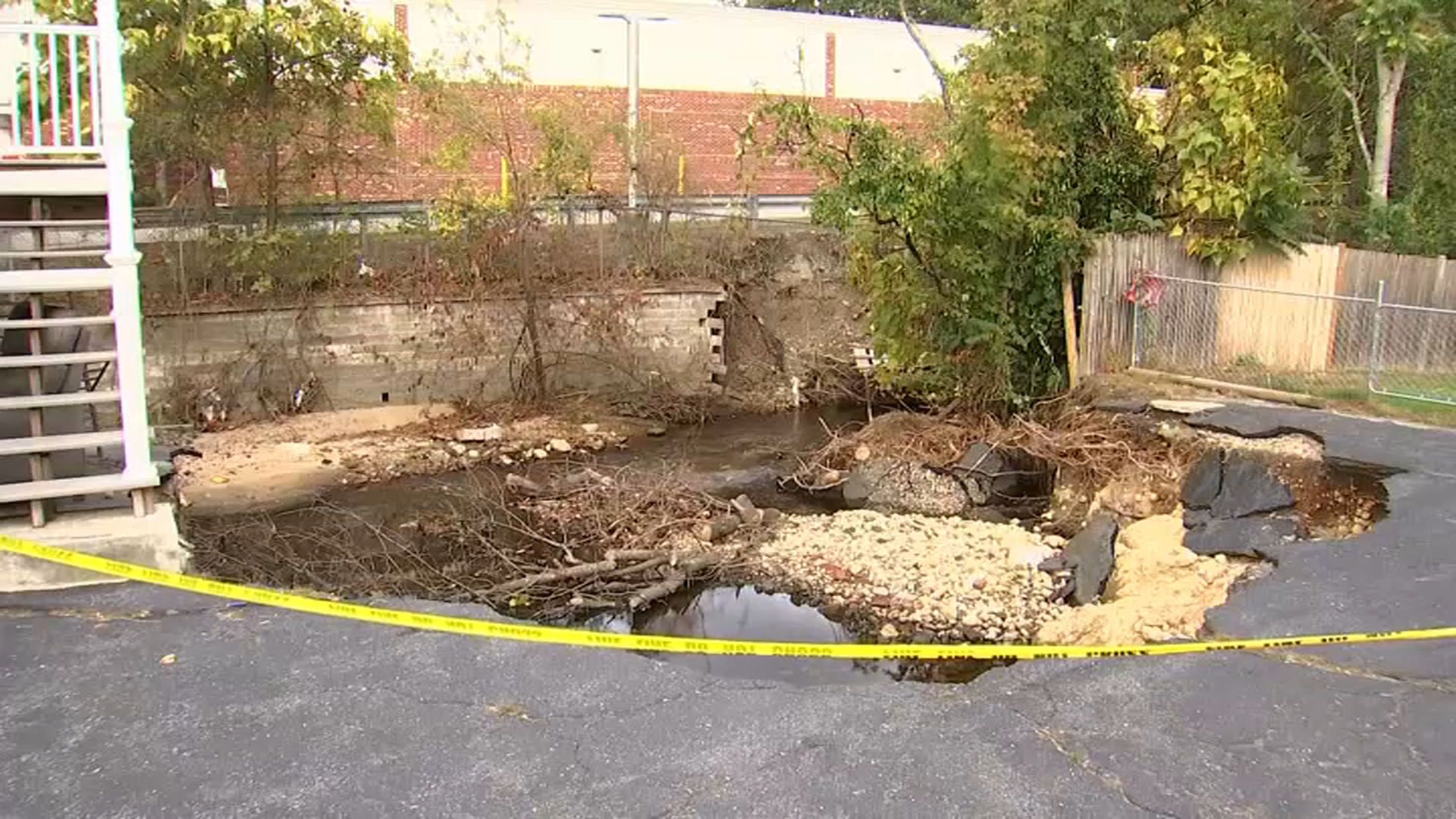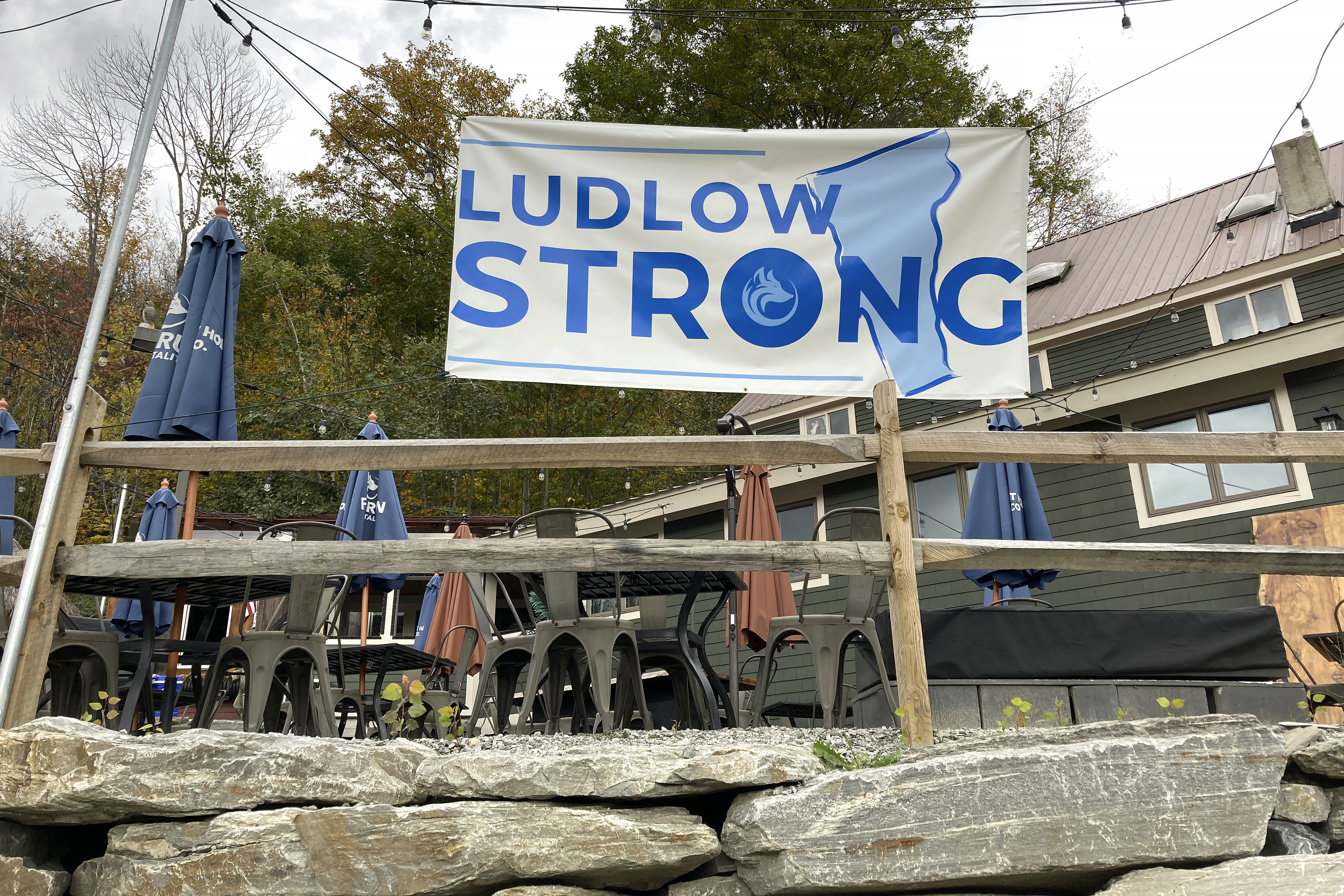Following a summer of flood events that rocked the East Coast, Boston needs to take concrete steps towards flood prevention and mitigation, advocates say.
New approaches could include: requiring that landlords inform potential renters of a property's flooding history, piloting a program to insure low-income families, capturing federal money to retrofit buildings to reduce risk and re-imagining the Interstate 90 redevelopment through Allston/Brighton.
"The reality is that climate change is here now, we don't have any doubt about that," said Boston City Councilor Liz Breadon, who co-sponsored a public hearing Monday on stormwater management and flood hazard mitigation. "This is our new reality -- increased frequency of intense rainstorms. In Allston/Brighton, heavy rainfall flooded Commonwealth Ave., it shut down the T and we had cases of below-grade apartments flooding."
The most recent Statewide Hazard Mitigation and Climate Adaptation Plan identified flooding from precipitation, coastal flooding and erosion due to sea level rise and high heat as the most significant hazards to Massachusetts as state government prepares for extreme weather events that are becoming more common and more intense.
Get New England news, weather forecasts and entertainment stories to your inbox. Sign up for NECN newsletters.
"This is the year that changed everything. We saw frosts, floods, extreme heat, and fires devastate our communities," Climate Chief Melissa Hoffer said earlier this month. "These weather events are only expected to increase."
Advocates who testified at the hearing Monday said Federal Emergency Management Agency (FEMA) flood maps are out of date, and that inland and coastal neighborhoods were susceptible to out-of-control stormwater damaging infrastructure.
Emily Norton, president of the Charles River Watershed Association, said her organization has concerns over the project proposed to redevelop the Allston I-90 viaduct, one of the main arteries into Boston.
The city and the state have long aimed to replace the aging highway bridge with two ground-level highways, to align rail tracks and build an MBTA/commuter rail station that would serve as a transit gateway to metro west, and to add a pedestrian boardwalk at roughly the same elevation next to the Charles River.
PHOTOS: Storm brings flooding, topples trees across Greater Boston
It's been over a decade since discussions on the project started, and estimates of a nearly $2 billion cost would rely in large part on federal funding.
Norton said her association hired Geosyntec consultants to look at several proposed models for the redevelopment, and found that the design to bring the highway down to ground-level, "as currently conceived, had the most risk of flooding, the most stormwater pollution and the least amount of park space."
Reducing the number of lanes on the Mass. Pike would mitigate some of that flood risk, she said.
"We've been advocating, looking at reducing the number of lanes. And I've been called crazy for saying that -- I don't think it's crazy. You could look at those zipper lanes or whatever they're called, where on rush hour one way you have more lanes. Something to be creative, so that you're not creating more of a flood risk for your residents. That is what we believe this project does," Norton said.
During a 495/Metro West Partnership advocacy event earlier this year, Rep. Hannah Kane of Shrewsbury pointed to the idea of trimming a lane on the Pike as a potential issue. "The reality is we can't go down from four to three lanes because of the volume of traffic," she said in April.
Anne Herbst, an environmental planner who co-authored a report for the Metropolitan Area Planning Council on "the increasing threat of stormwater flooding in greater Boston," told the committee that Massachusetts is one of only 15 states that has no state-level requirement to disclose flood history when selling property.
New York state passed a law in June requiring landlords to attach a flood history and risk notice in residential leases. Herbst encouraged city councilors to adopt a similar measure.
"This can be especially important for tenants in basement apartments, where flooding is more likely and flood insurance is not provided under the National Flood Insurance Program," she said.
Councilor Kendra Lara, who chairs the Environmental Justice, Resiliency & Parks Committee that held Monday's hearing, said she sees a quick route to require landlords to share flood information with renters.
"I'm also the chair of the Housing Committee here on the city council, and one of the things that we're working on to finish before this year is over is a renters' Bill of Rights," Lara said. "This idea that would require landlords to reveal flooding history, I think that is really ripe to be included in a renters' Bill of Rights."
She said there was "an opportunity here to codify that immediately."
Herbst also recommended that Boston look at a pilot project that New York City started to provide affordable flood insurance for low- and moderate-income residents.
"Many low-income residents are priced out of flood insurance for rents and in basement locations, flood insurance is not even available," Herbst said.
New York began a 12-month trial period starting in February to give up to $15,000 in emergency grants for qualifying households following a major flood event. The parametric insurance is covered by Swiss Re Corporate Solutions, to fund the rapid cash payments to families.
"Flood insurance is really more targeted to a homeowner who needs to rebuild their home. But if you're a renter who has flooded, you may have much more immediate needs that you can't meet, in terms of medications, where are you going to stay tonight? How are you going to get to work if your car's been flooded?" Herbst said.
Lara said she was "really interested" in exploring a parametric insurance program.
"We had a massive pipe rupture in my district on Heath Street last year that displaced half a dozen families, people who were renters. The city had to cover a lot of their hotel rooms for months. They didn't have insurance, it wasn't going to be covered," Lara said.
Advocates also recommended Monday that councilors look to FEMA to help support mitigation projects.
A 2021 federal law provides funding for states to establish revolving loan funds matched by FEMA grants, specifically targeted towards underserved communities. Herbst said only seven states and Washington D.C. have taken advantage of the program so far, but that D.C. proved the federal emergency agency will consider local grants as well.
More flooding news
The FEMA grants have provided 75% of the cost to retrofit buildings in low-income communities, she said.
"I think that's a really important strategy, and I think it's realistic that there's funding out there to do that," Herbst said.
The city has already started taking action on one of the recommendations MAPC made in its spring report, moving towards imposing a stormwater fee for homeowners and using that fee to incentivize green infrastructure on private property.
"A dozen MAPC communities have adopted stormwater utilities that charge property owners a stormwater fee to support system improvements. MAPC should continue to support municipalities in adopting stormwater utilities and encourage fee structures and programs that provide financial incentives and support for property owners to reduce impervious surfaces and infiltrate stormwater on site," the report says.
The city will begin hearings on the new stormwater fee in December, Boston Water and Sewer Chief Engineer John Sullivan said, with implementation planned for April.
At first, he said, the fee will be under $10 a month and property owners will get a reduction in their sewer fees.
"But as we go forward, we have to figure out how we can equitably apply that across all properties," Sullivan said. "The good news is there's an incentive credit system: if you build a rain garden ... you can get up to a 30% discount on your fees."




